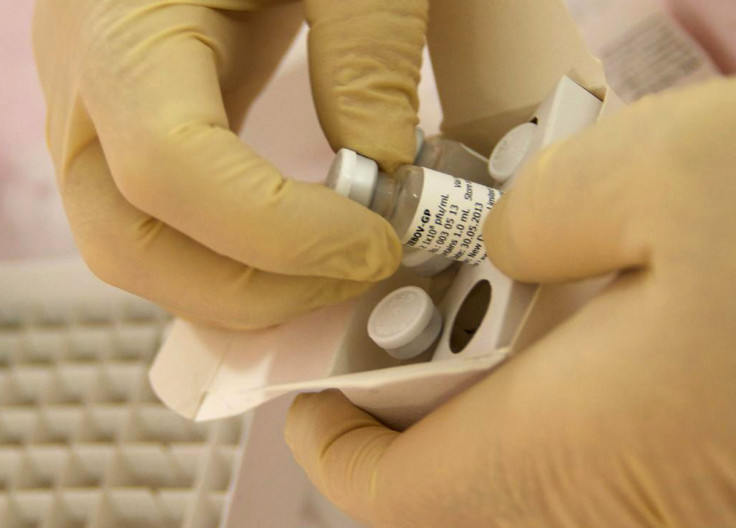Ebola Virus Cure: US Allegedly Ignored An Experimental Drug That Shows Promising Results

At a time when the fear of Ebola in the U.S. is spreading much faster than the disease itself, a biotech company has claimed that the country’s government has overlooked a potential drug that could help limit the virus’ spread. Sarepta Therapeutics claims it has a small supply of an experimental Ebola drug, which has shown promising results in preliminary tests.
Cambridge, Massachusetts-based Sarepta said that it informed the U.S. government that the drug, labeled “AVI-7537,” is available in limited quantities, but it has not yet received a positive response from authorities. The government had been funding Sarepta's research on the drug before it abruptly discontinued funds in 2012, citing budgetary reasons, Bloomberg Businessweek reported.
On Sept. 30, the day that Thomas Eric Duncan -- the first Ebola patient diagnosed in the U.S. -- tested positive for the virus in Dallas, Sarepta CEO Chris Garabedian told CNBC that the company needs fresh government funding to expand its supply of AVI-7537 to treat Ebola patients.
“We have been communicating to all of the government agencies, the World Health Organization,” Garabedian told CNBC. “We’ve had people at the table at every substantive discussion around how to manage this Ebola outbreak and have educated everybody who’s interested in learning about our technology and the drug we have available. Everybody knows we’re here. They know the drug we have, and we’re waiting for that call.”
In a statement issued last week, Sarepta announced a study -- to be published in the November issue of the journal Antimicrobial Agents and Chemotherapy -- that demonstrated “no clinical or toxicologic safety concerns” in human test subjects for the treatment of Ebola. According to a Sarepta spokesperson, the study was submitted well before Duncan, who was given the experimental drug brincidofovir, made by Chimerix, was diagnosed with Ebola, Bloomberg Businessweek reported.
Following Duncan's death, the Ebola outbreak in the U.S. has intensified after two nurses who treated him at a Dallas hospital were infected and are now being treated at two separate hospitals in the country.
On Sunday, U.S. Defense Secretary Chuck Hagel ordered the creation of a 30-person rapid-response medical support team to assist civilian health care workers if the number of people diagnosed with Ebola in the U.S rises. The U.S. Centers for Disease Control and Prevention, or CDC, is also set to implement new guidelines for American hospitals for treating Ebola patients in the future.
© Copyright IBTimes 2024. All rights reserved.






















